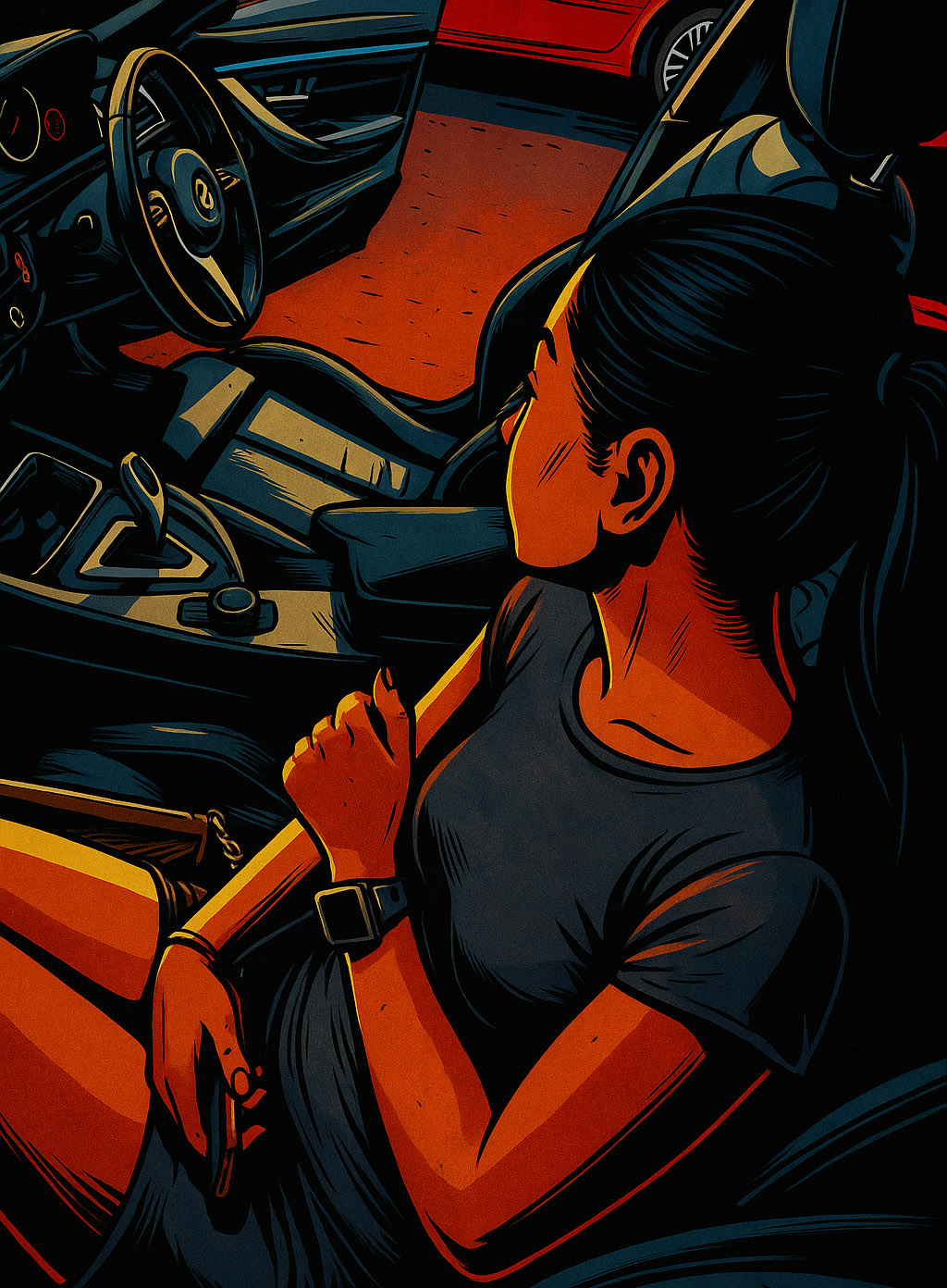So here’s the thing: I clicked play expecting a light, slightly goofy rom-com about a faded celebrity learning to live again. Instead, I got a delightful mashup — part fish-out-of-water comedy, part throwback melodrama, part mystery thriller — all bundled into two episodes that refuse to be tidy. If you love K-dramas that wink at genre rules while quietly reshaping them, this one will tug at your curiosity and your funny bone. If you’re allergic to the amnesia trope, stay for the craft; the show treats that trope like a battered but not broken prop. It actually earns its place.
Below: a full, spoiler-aware rundown of Episodes 1 and 2, character reads, what’s working, what’s worrying, predictions, and my honest take — with a final star rating at the end because yes, I will grade feelings like it’s a university paper from 2002.
TL;DR:
- A beloved 1999 actress wakes up in 2025 with amnesia, remembering only her glory days.
- The show is a clever genre hybrid, blending warm comedy with a dark mystery.
- Strong performances, especially from Uhm Jung-hwa, ground a wild premise in reality.
- The series uses nostalgia and familiar tropes to set up a suspenseful story of betrayal and identity.
Quick hook (in case you’re TL;DRing)
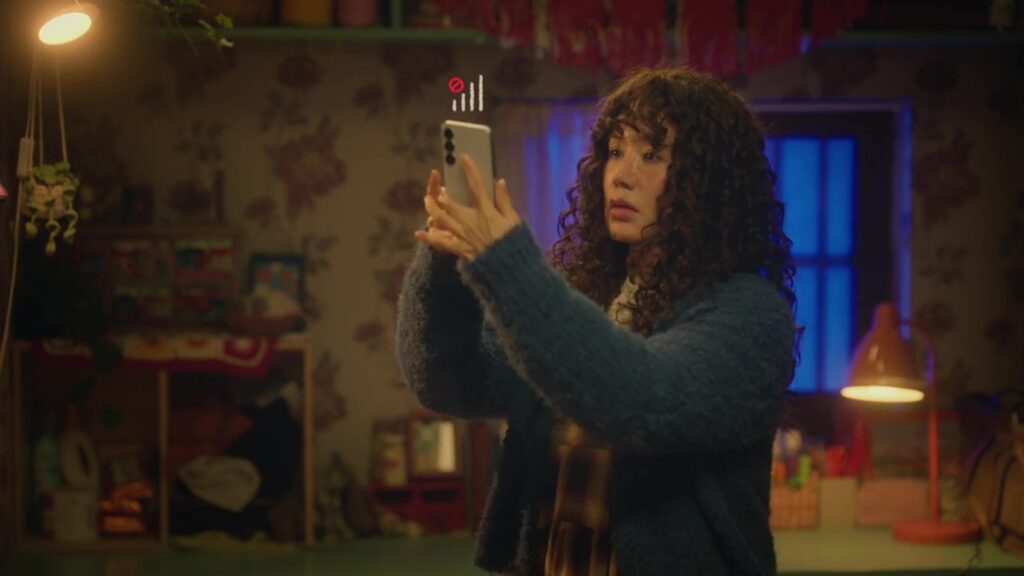
A beloved 1999 actress, Im Se-ra, wakes up in 2025 with retrograde amnesia. She remembers her glory days and nothing after. Now she’s living under a different name, dealing with modern life, and — surprise — several people around her might be lying. The show starts warm and funny. Then it gets a little dark. That balance is the show’s main flex.
What happens in Episodes 1–2 — scene by scene (but breezy)
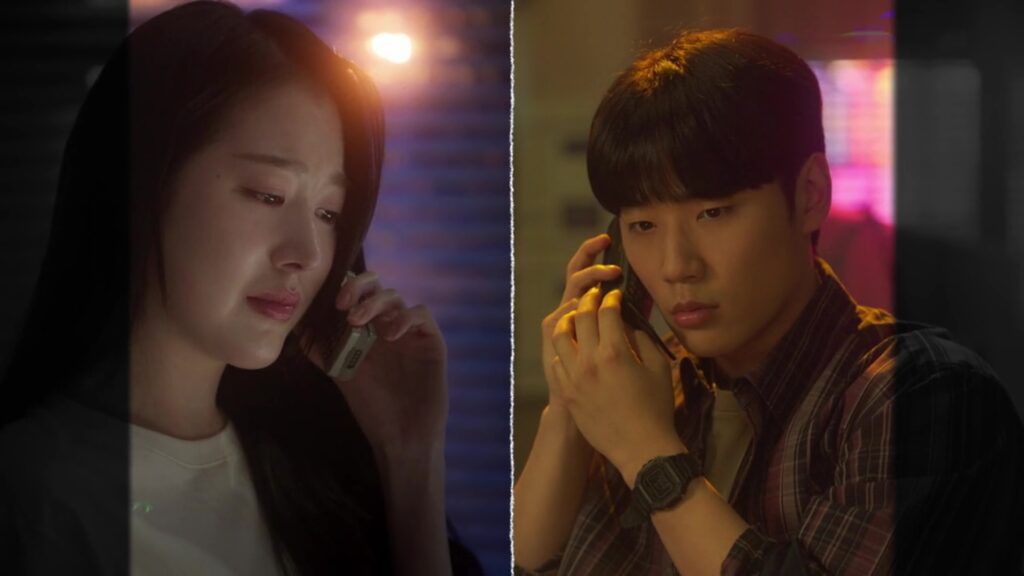
1999 set-up. First, we’re dropped into 1999. The era palette is glorious: hair, outfits, attitudes. Im Se-ra is at the top of the pop-culture hill. Younger Se-ra (played by Jang Da-ah) is likable. She’s not a manufactured diva. Instead, she’s hardworking, earnest, and clearly exhausted by the machinery around her. That machinery? An industry eager to exploit her image to raise money. Her dad? Not exactly an asset manager. He uses her name to pull off scams. Her sister? Distant on the surface but with hints of deeper affection.
The rookie cop. Enter Dokgo Cheol, a rookie detective (young Cheol played by Lee Min-jae). He’s adorable and completely unimpressed by the celebrity universe. In a police station where everyone else is starstruck, Cheol is the odd one out. He drags Se-ra into a routine questioning. The banter between them is immediate. She’s prickly. He’s dry and practical. He becomes the one person who listens.
Something changes. Se-ra loses a role because she refused to sleep with an investor. Classic industry rot. Cheol, who had been indifferent, becomes invested — heart and soul. He goes from “I don’t care about your face” to “you dedicate an award to half my phone number and I’m emotionally compromised.” It’s hilarious. It’s cute. And yes, it’s a rom-com nod.
Fast forward via the Truck of Doom (seriously). The show jumps to the present day. Instead of a full time-travel fantasy, we get something messier: an accident, a coma, and retrograde amnesia. Se-ra wakes in 2025 remembering her best days — the late 90s. She has no memory of the last 25 years. She is now known by her birth name, Bong Cheong-ja, and she looks like every “how did we get here” midlife character you didn’t know you needed. The actress playing present-day Se-ra, Uhm Jung-hwa, brings a weary authenticity that makes the premise believable.
Reality bites. She isn’t recognized by a world of smartphones, ATMs, and streaming. She assumes it’s a gag. Then she finds out via the internet that Im Se-ra vanished from public life twenty years prior. People think she’s been missing. Others apparently moved on. Meanwhile, Cheol (now a traffic cop — yes, we will talk about that odd career shift) shows up again. He recognizes this woman as the Se-ra he once adored. Yet the Se-ra he remembers doesn’t match the version before him.
A sister reunion. Using business cards, Se-ra tracks down her younger sister, Baek-ja. The little sister is now a single mom running a dumpling shop. The dynamic between them remains sharp and oddly tender. Baek-ja is annoyed, and deservedly so. She’s had a whole life of responsibilities. Se-ra’s return is not the rosy homecoming montage you want.
Threats bubble. There’s a hint of darker forces. Se-ra’s former manager, Kang Doo-won, has become an agency CEO. He’s now tied to Se-ra’s old rival, Go Hui-yeong, who got the role Se-ra rejected and subsequently rose to fame. Doo-won appears to be blackmailing Hui-yeong. Suspicious truck drivers lurk near Se-ra’s residence. A settlement meeting with a driver who might wish her harm goes sideways. The episode closes with Se-ra hiding from a would-be knifer. That cliffhanger jokes with genre and then dares you to care.
Characters — who’s playing what, and why it works
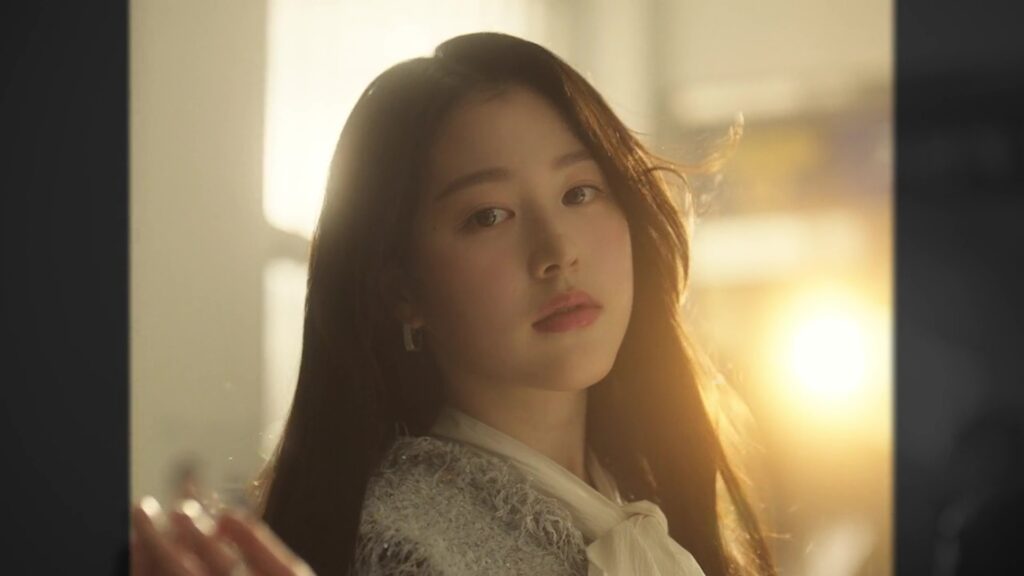
Im Se-ra / Bong Cheong-ja (Uhm Jung-hwa). Uhm Jung-hwa carries the show. She’s lived enough lives to make the switch between wide-eyed diva and exhausted middle-aged woman credible. Her comic timing is great. Her grief is quieter, but real. The amnesia angle gives her access to both the past glam and present grit. She isn’t a caricature of fame lost. She’s messy and humane.
Young Se-ra (Jang Da-ah). The younger counterpart provides a crucial anchor. She shows us why Se-ra was beloved. She’s empathetic, talented, and trapped by men who treat her like a commodity. Her scenes are short but important. They set up stakes.
Dokgo Cheol / traffic cop Cheol (Song Seung-heon). Song Seung-heon gives the patriarchal rescue fantasy subtlety. Cheol is sincere without being saccharine. He does more listening than most romantic leads. That makes his devotion feel earned. The jump from detective to traffic cop is eyebrow-raising. We don’t get answers yet. But it reads as deliberate — a hint that the cops around Se-ra changed as much as she did.
Kang Doo-won (Oh Dae-hwan). From manager to CEO. He’s polished, slimy, and politically savvy. He holds secrets. He also seems terrified of getting exposed. That fear is the show’s first obvious source of danger.
Go Hui-yeong (Lee El). Hui-yeong’s career arc provides friction. She took Se-ra’s opportunity and rode it to the top. Her smile masks other things. The show teases an alliance between her and Doo-won — or a toxic transaction. Either way, she’s the piece of the puzzle that smells like industry betrayal.
Bong Baek-ja (Joo In-young). The sister is grounded. She represents reality for Se-ra: domestic chores, a child, the slow grind. Baek-ja pulls you back from nostalgia.
Tonal tightrope: how comedy, pathos, and mystery coexist
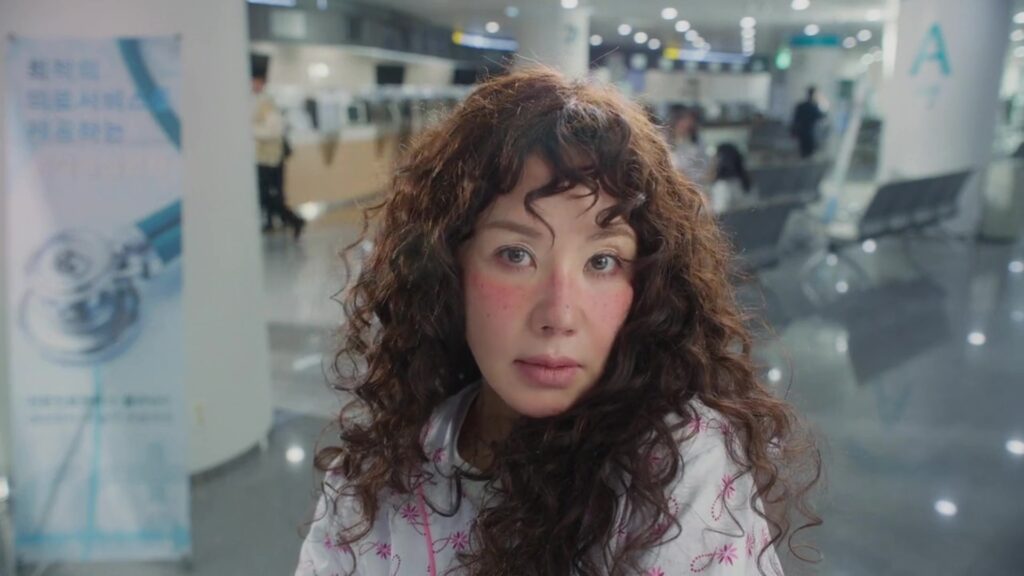
This show does something clever. It uses comedy to disarm you. Then it moves a chess piece and shows a darker board. The early sequences are light and laughable. The 90s scenes feel campy in all the right ways. They are affectionate without being parody.
Then, as we approach modernity, the humor thins. Confusion gives way to real threat. People are lying. Money is involved. Power is present. The narrative then brushes up against a conspiracy that might explain Se-ra’s disappearance.
Why this works: the contrast elevates both poles. The comedy makes characters human. The mystery gives stakes. The show balances the two without flattening either. It’s like watching someone retell a family legend, then realize the legend includes a crime scene.
What the writing does well
- Economy of dialogue. Characters say enough. They don’t yammer. Short lines land strong. The script trusts the actors to fill emotional space.
- Era switching that clarifies rather than confuses. The 1999 vignettes tell us who Se-ra was. Present-day scenes show who she isn’t. The juxtaposition is intentional and clear.
- Character motives that feel plausible. The father, the manager, the rival — each behaves like someone preserving status, not like a cartoon villain. Real people do messy things for real reasons. The show hints at those reasons and then makes them threaten Se-ra.
- Slow seeding of the mystery. The show doesn’t dump evidence all at once. Instead, it plants seeds — a truck driver, a blackmailing manager, the rival’s suspicious rise — and lets you sit with them. That makes later reveals feel earned.
Where the show could trip (and what I’m watching for)
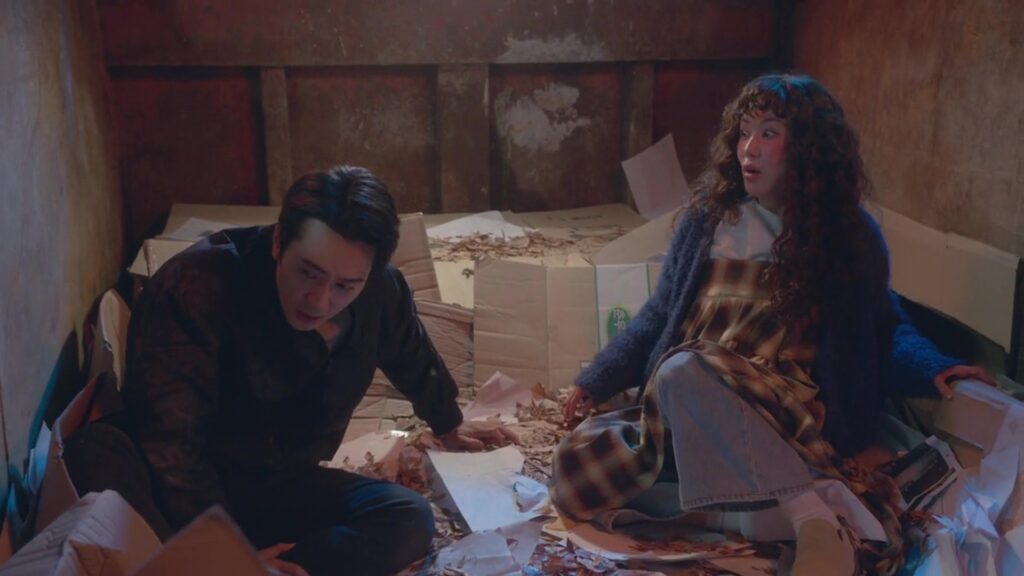
- Amnesia fatigue. The retrograde amnesia trope has been used a lot. If the series leans solely on it for sympathy without new angles, viewers will get impatient. That said, Episodes 1–2 add legwork: disappearances, possible foul play, and industry cover-ups. So far, the amnesia is a gateway, not the whole show.
- Too many mysteries. The manager, rival, truck driver, missing two decades — that’s a lot of threads. If the series multiplies threads without resolving any, some viewers will feel strung along. The writing needs to prioritize and resolve.
- Tone swings. Shifting from goofy rom-com beats to knife-threat close calls is bold. If handled clumsily, it could feel like a tonal whiplash. Right now, the swing works. I don’t want the show to overcorrect and become grimdark.
- Underused secondary characters. Baek-ja is compelling, but supporting cast depth will be important. Side characters must have real textures to avoid serving only as plot pivots.
Performances — the actors who stole the show
- Uhm Jung-hwa — she’s the show’s anchor. Her inner life is visible. She can be painfully funny and achingly lost within a single look.
- Song Seung-heon — he’s steady. He is the quietly heroic presence you want to root for. His restraint avoids melodrama.
- Jang Da-ah & Lee Min-jae (young leads) — if there were a spin-off featuring these two as young lovers/sleuths, I would pay money. Their chemistry sizzles on a smaller scale. They sell the early relationship and give the older actors something to mirror.
- Oh Dae-hwan & Lee El — they make industry friction feel real. Their scenes have a whisper of menace and a lot of corporate calculation.
Themes bubbling under the surface
- Fame vs. identity. Se-ra’s situation asks: Who are you without a persona? When your public self disappears, what remains? The series uses amnesia to interrogate how identity is framed by memory and by public narrative.
- The cost of silence. There are people who chose not to speak. There are deals made for silence. The show suggests that silence can be protection for some and a prison for others.
- Generational fallout. The sister subplot highlights how one person’s choices ripple into other lives. Missing out of decades doesn’t erase consequences.
- Industry exploitation. The 1999 scenes remind you how much talent is commodified. The show’s handling of this theme is sympathetic without being preachy.
Visuals, sound, and production notes (because aesthetics matter)
- Production design nails the late ’90s palette. The retro costumes, props, and hairstyles are so specific that they feel lived in instead of nostalgic kitsch.
- Cinematography is practical. It focuses on faces and small details: a trembling hand, a business card, a truck license plate. These closeups make the mystery tactile.
- Score uses cues to balance comedy and tension. It rarely overwhelms. It supports scenes rather than telling you how to feel.
- Editing is sharp. The show resists indulgent breathers. Even reflective scenes have momentum.
Pacing — two episodes in, should you commit?
Yes. The first two episodes move briskly. They give you character, context, and conflict without resorting to info dumps. The show uses curiosity as propulsion. Each episode ends with an incentive to keep watching — not cheap cliffhangers, but stakes that feel organic. If the series maintains this pace and pays off clues, it will stay sticky.
Predictions & theories (because it’s fun and I’m nosy)
- Manager’s secret. Doo-won has dirt on Hui-yeong. That dirt may involve the 1999 role Se-ra refused. Maybe a film set incident. Maybe a cover-up. Either way, it’s likely tied to Se-ra’s exit.
- Cheol’s career arc hides something. Why did a detective become a traffic cop? Either he got burned on a previous case related to Se-ra, or he took a demotion to be close to certain people and avoid others. This suggests institutional pressure in the police.
- Se-ra’s disappearance wasn’t voluntary. The show hints at foul play. The truck driver who kept showing up is a sloppy clue. Someone made sure she disappeared from public life. Whether that someone is a corrupt manager, a jealous rival, or a shadowy investor — we’ll see.
- Baek-ja knows more than she admits. Her annoyance reads partly like survivor fatigue, and partly like someone hiding old resentments. She may have been forced into secrecy by family pressures or industry threats.
- Modern Se-ra will reclaim agency. The amnesia arc will likely catalyze a reinvention that doesn’t rely on the industry’s image machine. The show may chart her reclaiming autonomy while hunting answers.
My point of view — candid and unfiltered
I came in wanting a light comedy. I left intrigued and slightly alarmed — in a good way. The series lures you with nostalgia and then forces you to ask real questions. That tonal layering is satisfying.
I appreciated how the show respects its characters. Se-ra isn’t a joke. Cheol isn’t a parody of obsessive love. The people who fell in love with Se-ra’s image are shown as fallible humans. That nuance matters. Too many dramas let characters be archetypes. This one lets them be complicated.
The production choices are smart. Casting older and younger actors who convincingly mirror each other was genius. It helps the audience feel continuity across time. The humor lands because it’s character-driven, not punchline-dependent. The danger scenes land because they are unexpected. A comedy that surprises you with real peril earns credit.
My worry: if the show promises too many big reveals and then doles them out in unrelated ribbons, viewers will feel toyed with. I hope the writers aim for a core resolution — a revealing, satisfying core — and then layer in subplots that complement it. Keep the stakes personal. Keep the pace steady. We don’t need a labyrinth of red herrings with no exit.
Who should watch this (and who should skip)
Watch if:
- You love genre hybrids — rom-com plus mystery.
- You enjoy character work over spectacle.
- You are into K-drama nostalgia for the late 90s.
- You like shows that balance laughs with legitimate danger.
Skip if:
- You can’t tolerate the amnesia trope at all.
- You need razor-tight plotting where every loose thread is tied up within two episodes.
- You prefer pure slapstick or pure thriller without tonal blending.
Final thoughts — why this matters
At its heart, My Troublesome Star is more than a nostalgia trip. It asks what fame means when memory fails. It asks whether identity is a story you tell yourself or a story others tell about you. It explores the ripples of a vanished life — not in melodramatic confessionals, but in quiet awkward dinners, missed calls, and the slow grind of a sister’s small business. That human focus elevates what might otherwise have been a gimmicky setup.
The show’s mixture of charm and menace gives it range. It can make you laugh in one scene and then hold your breath in the next. That range is a risk. It’s a risk that, for now, pays off.
Final verdict — Episodes 1–2
Delightfully strange. Gently haunting. Anchored by great acting and a premise that rewards attention. If the writers keep prioritizing character motives over cheap plot twists, this series stands to be one of the more interesting blends of rom-com and mystery in recent K-drama memory-trope offerings.
Rating: ★★★★☆ (4 out of 5 stars)
Why not five? Because the show still has to prove it can manage so many threads without turning them into noise. But the first two episodes give me faith. They’re funny, they’re stirring, and they tease a mystery with real teeth. I’m in.






